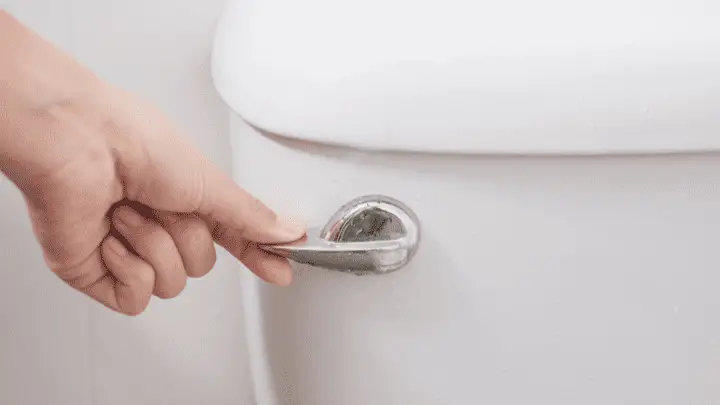Have you ever wondered why you can’t flush the toilet after a drug test? If you have, you’re not alone. Many people are curious about the reasons behind this rule and what it means for their privacy and health.
In this article, I’ll explain everything you need to know about drug testing and flushing the toilet. I’ll also give you some tips on how to prepare for a drug test and avoid any problems. Whether you’re an employer, an employee, or someone who wants to learn more about this topic, this article is for you.
Read on and discover why flushing the toilet after a drug test is a big no-no.
The Drug Testing Process
Drug testing is a common practice in many settings, such as workplaces, sports, healthcare, and legal systems. It involves analyzing a biological sample, such as urine or hair, for the presence or absence of a legal or illegal drug.
Drug testing can help determine if a person or employer has used or misused certain substances, which may affect their health, safety, or performance.
1. Standard drug testing procedure
The standard drug testing procedure varies depending on the type of test, the purpose of the test, and the drugs being tested. However, most drug tests follow these general steps:
- The person being tested provides a sample of urine, blood, saliva, hair, or sweat under supervision or in a private setting.
- The sample is labeled and sealed in a tamper-evident container.
- The sample is sent to a laboratory for analysis using various techniques, such as immunoassay, chromatography, or mass spectrometry.
- The laboratory reports the results to the person or organization that ordered the test.
- The results are interpreted according to the cut-off levels and detection times of each drug.
2. Collection of urine samples and the significance of a clean and controlled process
Urine samples are the most common type of drug test. This is because urine tests are easy to collect and inexpensive. Furthermore, it can detect a wide range of drugs for a long period of time.
However, urine samples are also prone to contamination, adulteration, or substitution. In turn, it may affect the accuracy and validity of the test results.
To ensure a clean and controlled process, urine samples should be collected following these guidelines:
- The person being tested should not drink excessive fluids or use diuretics before the test to avoid diluting the urine.
- The person being tested should not use any products that may interfere with the test, such as mouthwash, soap, bleach, vinegar, or eye drops.
- The person being tested should empty their bladder before providing the sample and collect at least 30 milliliters (one ounce) of urine in a sterile container.
- The person doing the drug test should not flush the toilet after providing the sample to prevent flushing away any traces of drugs that may be present in the toilet water.
- The sample should be checked for temperature, color, odor, and specific gravity to ensure its authenticity.
- The sample should be stored at room temperature or refrigerated until it is sent to the laboratory.
3. Importance of accuracy in drug test results
Drug test results can have significant consequences for individuals and organizations. For example, positive drug test results may lead to denial of employment, termination of employment, disciplinary action, loss of benefits, legal action, or referral to treatment programs.
Negative drug test results may indicate compliance with policies, eligibility for opportunities, clearance for duties, or recovery from addiction. Therefore, drug test results must be accurate and reliable.
Accuracy means that the test correctly identifies the presence or absence of a drug in a sample. Reliability means that the test produces consistent and reproducible results under similar conditions.
Why can’t you flush the toilet after a drug test?

If you are taking a drug test, you may be wondering why you can’t flush the toilet after you provide a urine sample. The reason is that flushing the toilet could alter the concentration of the urine and affect the results of the test.
Flushing the toilet could also be seen as an attempt to tamper with the sample or to hide any traces of drugs in your system. For example, someone may try to dilute their urine by adding water from the toilet bowl or introduce adulterants by flushing them down the toilet.
Therefore, most drug testing facilities will ask you to avoid flushing the toilet until they have collected and sealed your sample. This is to ensure the accuracy and integrity of the test and to prevent any false positives or negatives.
Advice for Individuals Undergoing Drug Tests
1. Guidance on following testing facility instructions
When you arrive at the testing facility, you will be asked to provide a urine sample for analysis. The staff of the testing facility will give you specific instructions on how to collect and submit your sample.
Some of the common instructions you may receive are:
- Do not eat, drink, smoke, or chew gum for at least an hour before the test.
- Do not bring any personal items, such as your phone, wallet, or bag, into the collection area.
- Wash your hands before and after providing the sample.
- Use the provided container to collect your sample.
- Fill the container at least halfway with urine.
- Do not flush the toilet or run the tap water after providing the sample.
- Seal the container with the provided lid and label.
- Return the container to the testing facility staff as soon as possible.
You must follow these instructions carefully, as they are designed to ensure the integrity and validity of your sample.
2. Tips on ensuring accurate and reliable test results
The accuracy and reliability of your drug test results depend largely on the quality of your urine sample. To avoid any false positives or negatives, you should take some steps to ensure that your sample is not diluted, contaminated, or adulterated.
Some of the tips you can follow are:
- Drink plenty of water in the days leading up to the test, but avoid excessive hydration on the day of the test.
- Avoid taking any medications, supplements, or herbal remedies that may interfere with the test results unless prescribed by your doctor.
- Avoid consuming any foods or drinks that may contain substances that can trigger a positive result, such as poppy seeds, hemp seeds, energy drinks, or alcohol.
- Avoid using any products that may contain traces of drugs, such as shampoo, soap, lotion, or hair dye.
- Do not attempt to use any products or methods that claim to mask or flush out drugs from your system, such as detox drinks, synthetic urine, vinegar, bleach, or aspirin. These products are ineffective, unsafe, and easily detectable by the testing facility.
Addressing common misconceptions and concerns
Many people have some misconceptions or concerns about drug testing, such as:
How long do drugs stay in your system?
The detection time of drugs in your system depends on several factors, such as the type of drug, the amount and frequency of use, your metabolism, your body fat percentage, and your hydration level.
Generally speaking, most drugs can be detected in urine for up to 3 days after use, but some drugs can linger for longer periods. For example, marijuana can be detected for up to 30 days in chronic users.
What are the consequences of failing a drug test?
The consequences of failing a drug test vary depending on the purpose and context of the test. For example, if you are applying for a job that requires drug testing, you may lose your chance of getting hired.
If you are already employed and subject to random drug testing, you may face disciplinary action or termination. If you are involved in a legal case or a custody dispute that requires drug testing, you may lose your rights or privileges.
I hope this section has provided some useful information and advice for individuals undergoing drug tests. If you have any questions or concerns, please consult your doctor.
FAQs
Can you flush after a negative test?
After receiving a negative drug test result, you can typically resume normal flushing habits without concern. The absence of detectable substances means there’s no need for special disposal methods.
What happens if you flush?
Flushing after a drug test, especially if the results are positive, can have legal consequences. It’s crucial to follow recommended disposal methods to avoid potential legal issues.
Is it different for different drugs?
Post-drug test flushing guidelines generally apply universally, regardless of the specific drug being tested. The focus should be on responsible waste disposal and adhering to legal standards.
How long do drug metabolites stay in the system?
The duration varies depending on the drug, metabolism, and individual factors. Generally, drug metabolites can be detectable for days or weeks, emphasizing the importance of proper waste disposal even after a negative test.
What are the detectable substances in drug tests?
Drug tests can detect a wide range of substances, including illicit drugs and prescription medications. Understanding what can be identified reinforces the need for responsible waste disposal to protect both privacy and the environment.
Conclusion
To wrap up, flushing the toilet after a drug test is a big no-no. It can raise suspicion that you are trying to tamper with the sample or hide something from the tester. Flushing the toilet can also affect the accuracy of the test results, as it can dilute or contaminate the urine.
That’s why most drug testing facilities have signs or stickers that remind you not to flush the toilet after a drug test. If you do flush the toilet, you may have to repeat the test or face other consequences.
So, next time you have to take a drug test, remember to follow the instructions and leave the toilet as it is. This way, you can avoid any trouble and show that you are a responsible and trustworthy person.
Of course, after your drug test, you want to know what’s next, right? Here’s how to know if you passed your drug test.
Thanks for reading.







